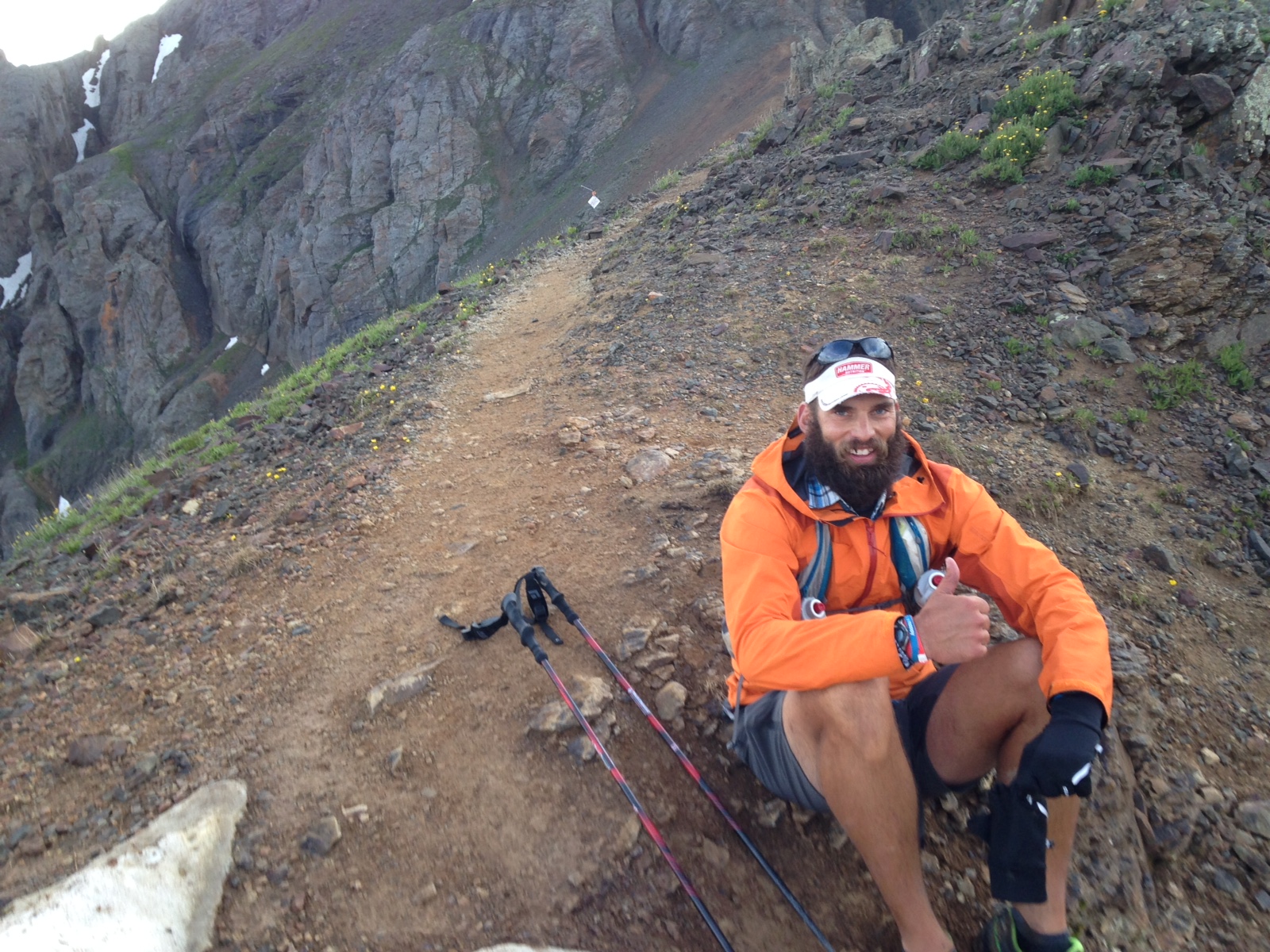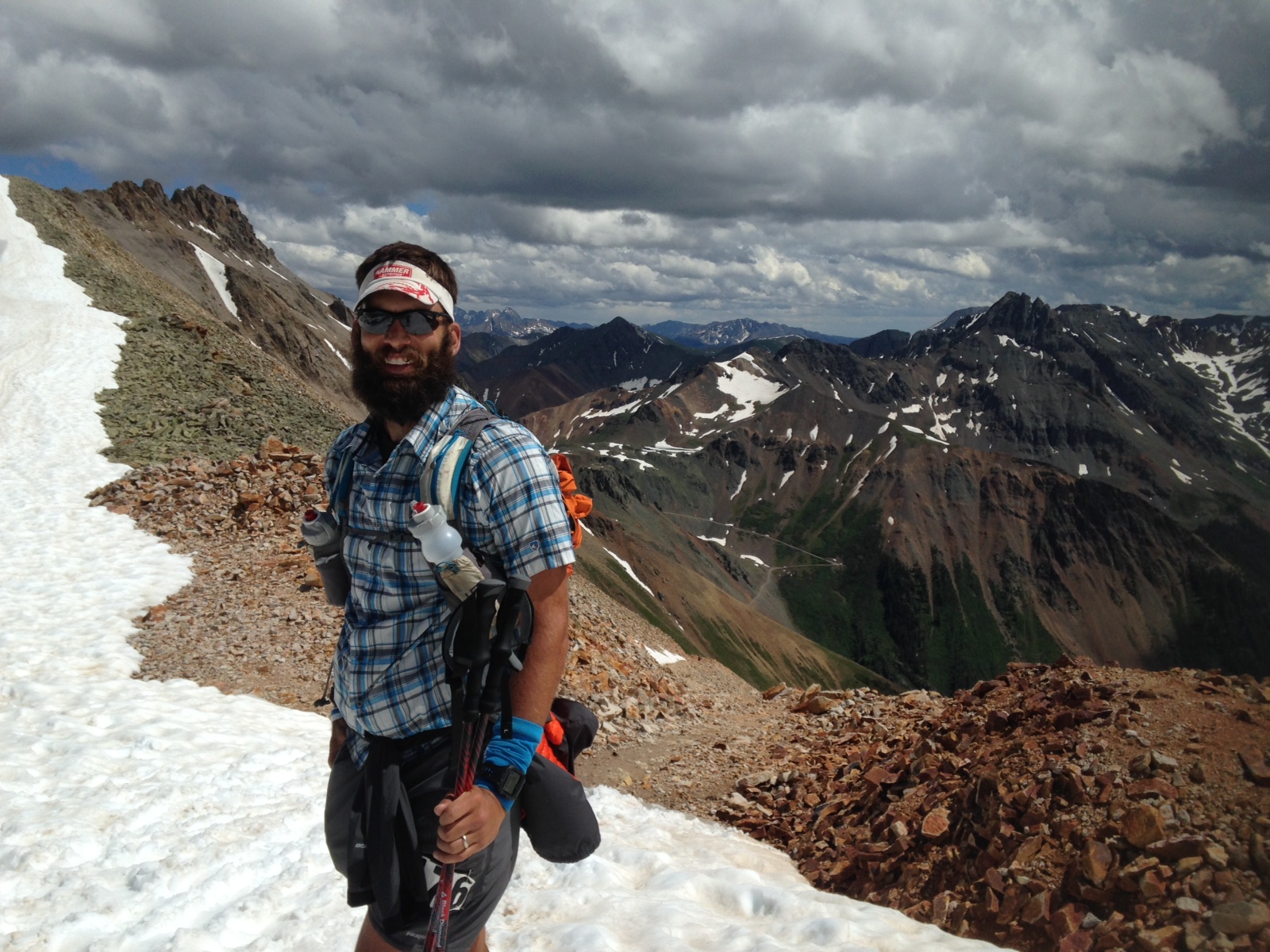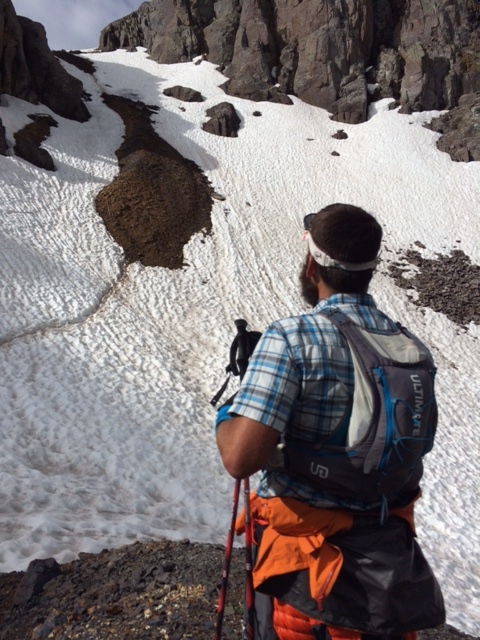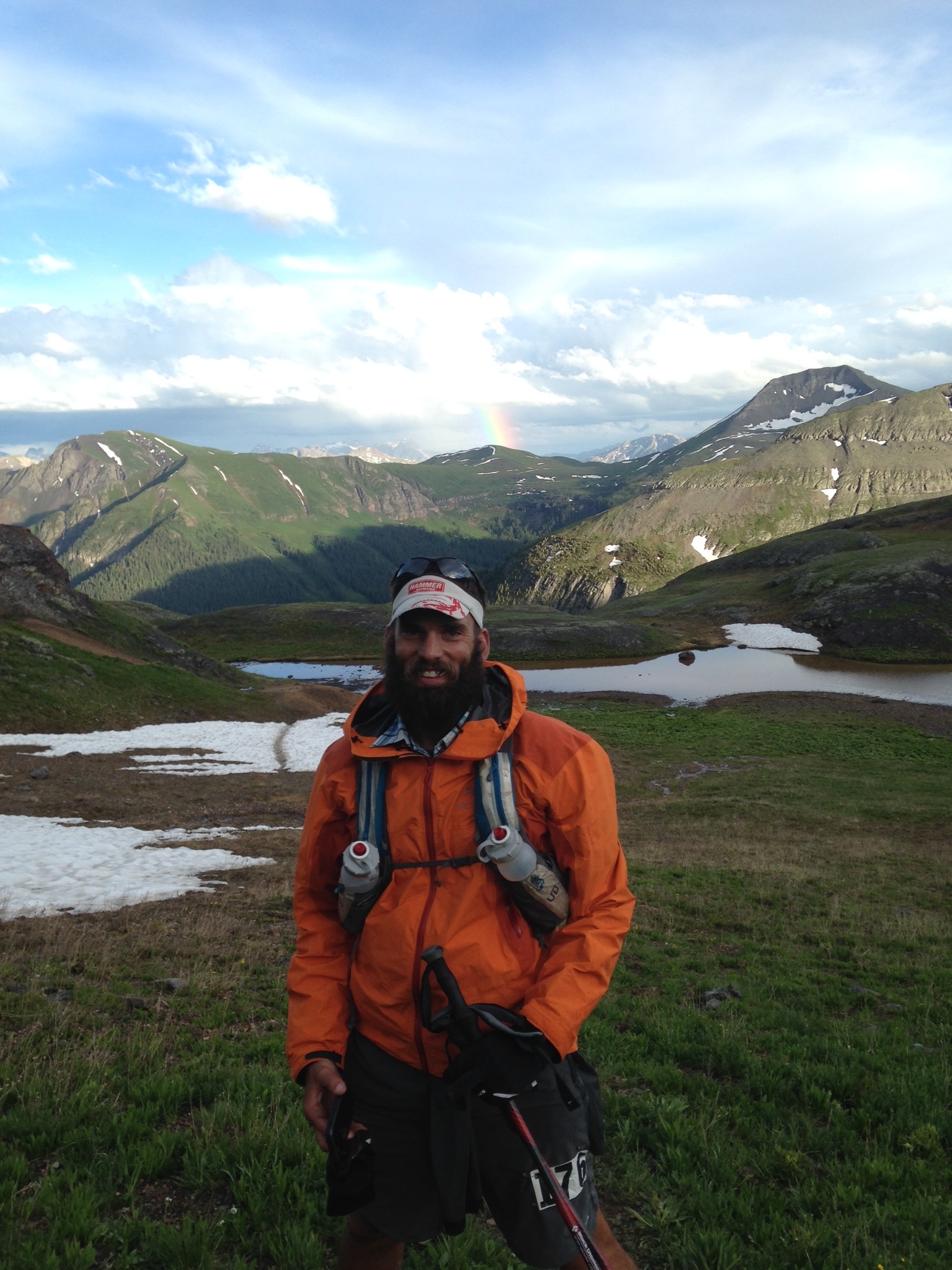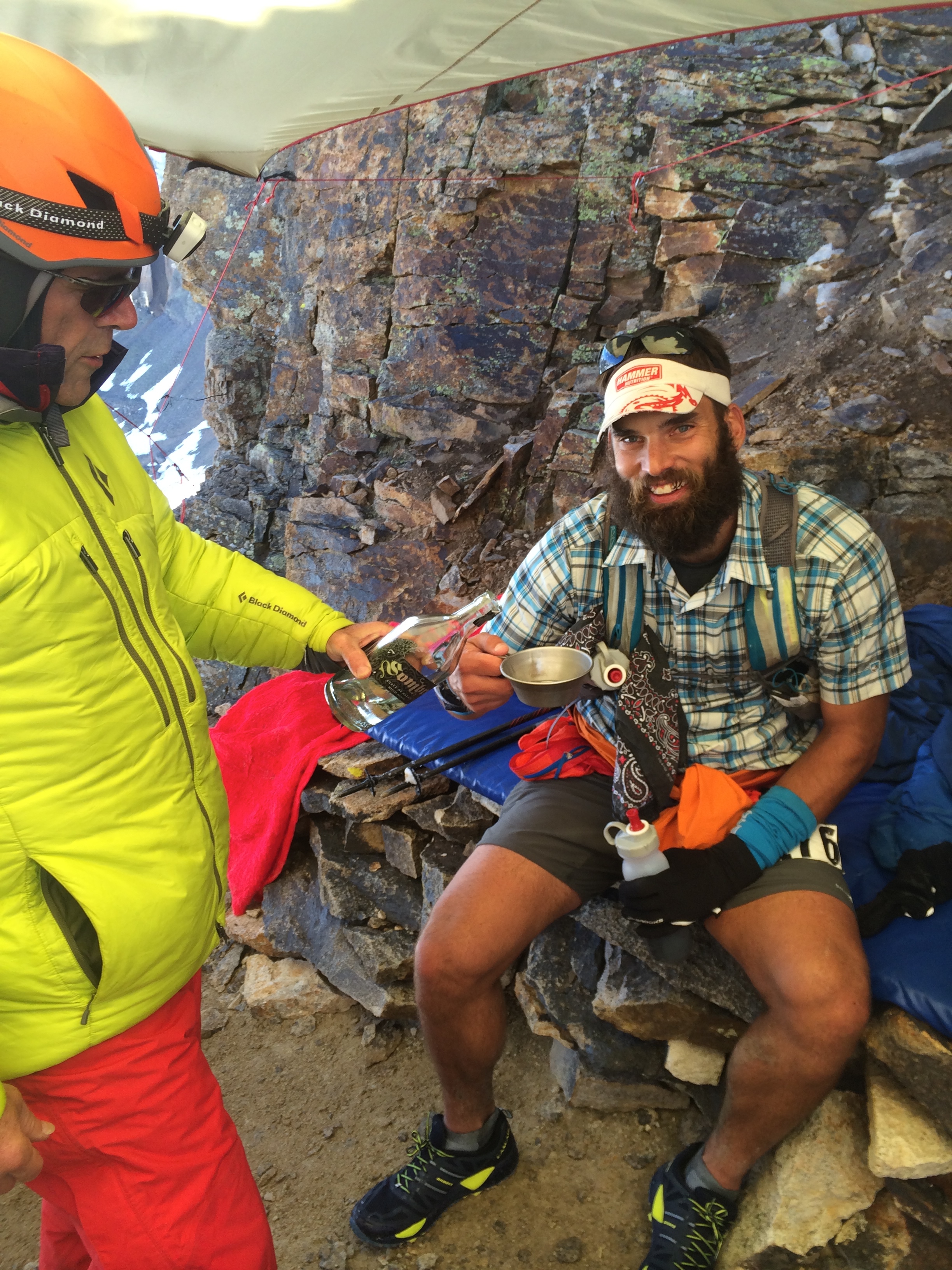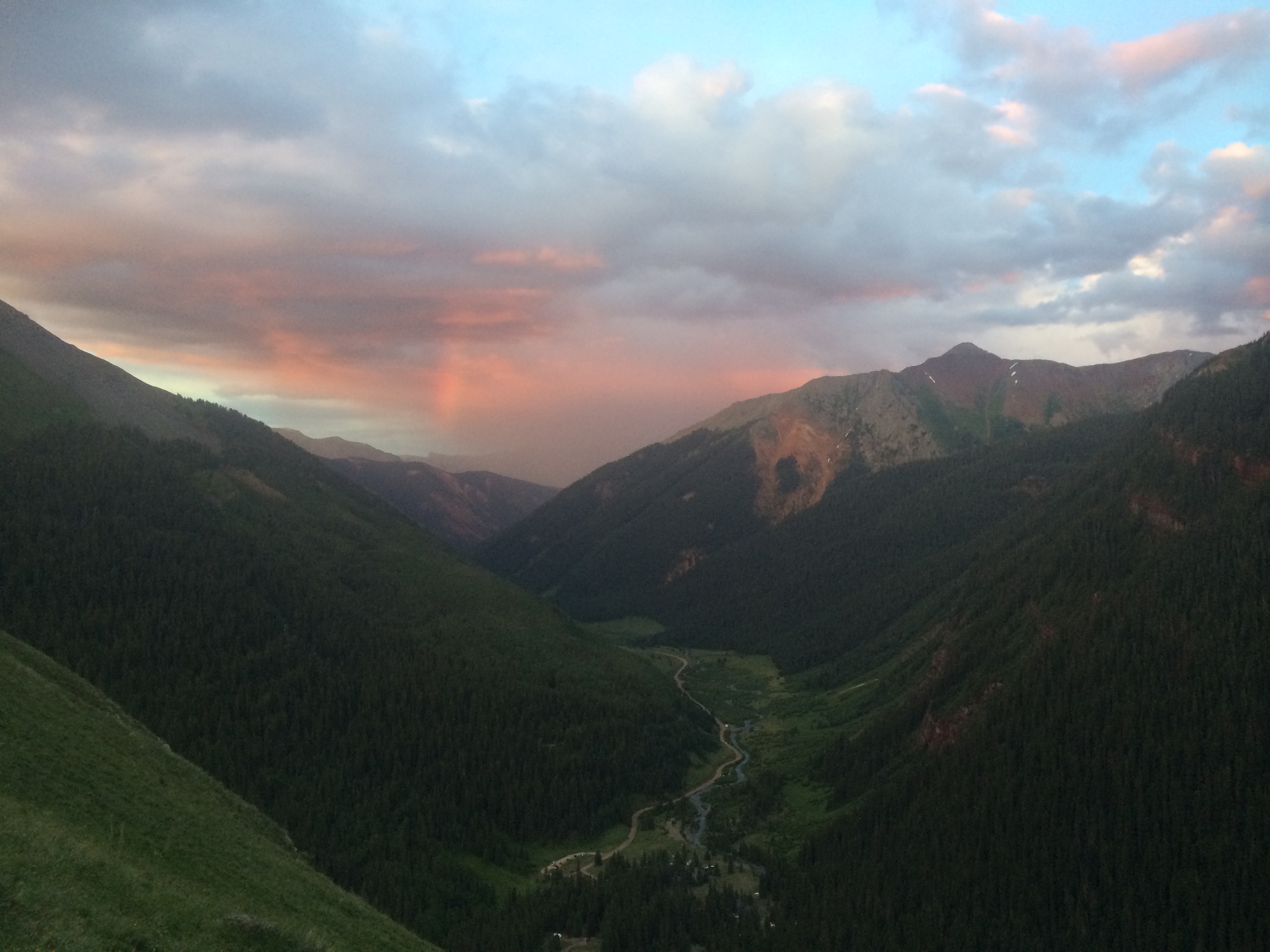Brian Ricketts realized a dream this July and completed his first Hardrock 100 Mile Endurance Run. It took 6 years of throwing his name in the lottery to officially go to battle with the toughest 100 mile mountain run in the world. The race ascends 33,992', is at an average elevation of 11,700' above sea level, summits Handies Peak which sits at 14,048', and has an average finish time of around 41 hours with a 48 hour cutoff.
From the HR100 website:
"The course is designed to provide extreme challenges in altitude, steepness, and remoteness. Mountaineering, wilderness survival and wilderness navigation skills are as important in this event as your endurance... the course covers extremely rugged terrain including steep scree climbs and descents, snow packs, river crossings, and boulder fields."
Brian was kind enough to answer some questions about his race so I could share them here... I hope you enjoy hearing about it as much as I have.
What made you want to race over 100 miles in the burly San Juan Mountains?
I fell in love with the San Juans the first time I laid eyes on them in 2007. I had just started my first summer as a teacher and was headed to Telluride for the Bluegrass Festival. When I crested the pass outside Rico and saw Trout Lake with snow-covered peaks in the background, I was hooked. I knew then I had found my home in the mountains. The more I explored these mountains (while at the same time growing as a runner), I knew I had to do Hardrock. It is THE quintessential race for any ultra runner who wants the ultimate combination of beauty and challenge.
How did you train for a race that is run at an avg elevation of 11,700' above sea level in San Antonio, TX?
You can't really train for the elevation unless you live at altitude or have an altitude tent. My job as a teacher allows me the opportunity to get to the mountains a few weeks early, so I knew I would have enough time to get fairly acclimatized. Knowing that, my coach and I focused on building leg strength for the long climbs and descents I would experience. You can’t get anything close to a 5 mile climb around San Antonio, much less one that is at a grade of 10-20% like I would experience at Hardrock. We incorporated long sessions on the treadmill, which I despise but knew were a necessary evil. I hit the gym once a week for strength training sessions, which I firmly believe helped me get to the finish line. I also tried to run in the mountains once every 6-8 weeks, whether that was a race or training weekend in the Guadalupe Mountains in West Texas.
This was supposed to be a rough year with the late snowfall...did that impact your race more than you thought or was it as expected?
Since I had never actually run Hardrock before, I had nothing with which to compare the course conditions. People kept telling me this was a lot of snow, but I had nothing to base it on. I thought it would be fun to experience a “high snow” year, but I was fine with whatever. There are certain sections of the course (both climbs and descents) that are actually easier with snow, so I was indifferent about it. That being said, the snow made scouting the course extremely difficult. 3 weeks prior to the race almost everything about 11,000’ had snow on it. Finding the trail was tough, and moving across it even tougher. I got as high up as I could and tried not to worry about the sections I couldn’t access. I never thought the snow was an inhibiting factor during the race.
Were there any points during the race where you simply thought you cannot go on any further? If so, what did you do to keep moving?
My only instructions to my crew before the race were to make sure I took in calories at every aid station and to not let me quit. I would rather be pulled from the course or timed out than to stop on my own. Simply put, quitting was never an option. I had moments where my legs were quivering and my body wanted to shut down, to literally lie on the trail and sleep. But I never let the thought of stopping enter my mind. I definitely worried that some sections were taking longer than they should (the last 11 miles were brutal), but I knew that if I kept forward progress I would reach the finish. This race was too important to me to quit.
Was there an emotional high-point during the 103 miles?
I run these races because I love the mountains. I am not going to place or win any money, so I am out to just enjoy my surroundings. With that mindset, I was absolutely blown away by the sunset over American Basin. It was getting late in the evening on Friday and I was slowly plodding up to the summit of Handies Peak, the high point on the course at an elevation of 14, 048’. I could see the summit, but I couldn’t really see what lay on the other side. When I crested the top and was treated to a snow-filled American Basin and the mountains aglow with the setting sun, I think I actually muttered out loud about how amazing this was. Sloan Lake was still frozen below, and the peaks were awash in varying shades of pink and orange. In post race interviews, numerous runners have said that sunset on the first night (regardless where you encountered it) was magical.
Another high point was the top of Grant-Swamp Pass. GS is the last big climb on the course in this direction (around mile 86), and the final scramble to the top is incredibly steep and full of loose scree. I had been up the other side and knew what I’d see, but the sight of an icy Island Lake on the other side of the pass was breathtaking, accentuated by the rainbow that appeared to the east.
Did this experience leave you with anything new? Perspectives? Ideas? Thoughts?
Completing Hardrock is the single greatest athletic achievement I’ve ever accomplished. It has given me the confidence to take on any challenge, knowing that anything is possible. Ironically, I am deathly afraid of heights, and although I didn’t leave these fears behind by completing Hardrock, I faced them head on and came out a better person, more confident. I want to get back up into the high country as soon as possible. Routes that previously seemed crazy now look appealing to me. I encountered ice, snow, cliffs, steep drops, and everything in between at Hardrock and am ready for them all again.
What would you do differently next time?
I feel like my training was spot on in most aspects. I did a ton of long treadmill sessions to simulate the climbs I would encounter at Hardrock. Next time I plan on doing some of these runs with pre-fatigued legs and mind, maybe hitting some weights just before the workout or doing it late at night to simulate the climb I would face late in the race. In addition, I really wanted to climb some 14ers prior to the race. The late (and very heavy) snowfall made this tougher than in most years, and I was only able to get to just below 13k in training. It may be mental, but I feel like I needed a few summits on big peaks to prepare me for the race. Also, I would love to have access to an altitude tent to get acclimatized prior to going out to the mountains. 3+ weeks at altitude was sufficient, but I think using a tent would reap big benefits.
Did you training seem to properly prepare you for the event?
At no point during Hardrock did I feel like I couldn't handle what the course threw my way. Sure, I was moving slowly up the big climbs, but so was everyone else. My legs were never an inhibiting factor (my stomach slowed me down more than anything else). I felt totally prepared for a race in Colorado, despite living close to sea level in South Texas.
You had a crew and pacers...how important were they in your success?
I’ve done a couple 100 milers without pacers or crew, but Hardrock is not one I would want to attempt in this fashion. My crew and pacers were invaluable to my success and are a big reason I was able to finish. With only 152 racers at Hardrock, things can get spread out very quickly, leaving long stretches of solitude. I like these stretches during the daylight hours, but they can be unnerving at night when fatigue sets in and the mind plays tricks on you. Hardrock poses some navigational challenges, and without Liza pointing the way on the trail-less grass at night, I might still be on top of the mountain searching for course markers in the dense fog. My support team was the best!
Will all other races seem a bit easier now after conquering this beast?
After Hardrock, all other races will seem easy. From the physical to the mental, Hardrock through everything at me, and completing it gave me the confidence to tackle any challenge. This will open new doors that I had never thought possible before. I can’t wait for the next challenge.
Thanks and CONGRATS on an amazing Hardrock 100 finish!!!!


